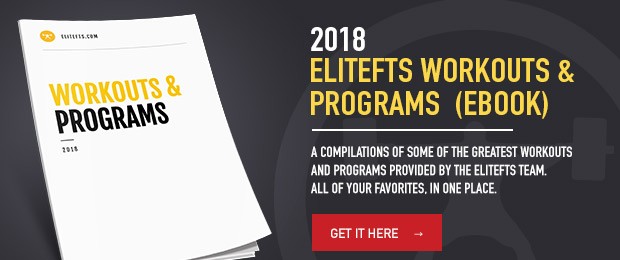
Over the past 20 years, the number of people receiving a college education has grown exponentially. From 2000 to 2016, the number of students enrolled in undergraduate programs rose almost 40%. There are numerous benefits to having more of the population attend college, but we have also seen in recent years that many students graduate with a degree and have no idea what to do with it (or do not use it at all). The services, jobs, and mentors a college student is involved with during schooling often determines how prepared they are for working through career options. In my experience, the vast majority of students do not know how to navigate all the variables involved in choosing a career path, unless someone has dedicated time to work with them on that conversation.
RECENT: So You Want to Be A Collegiate Strength Coach: Steps to Earning Your First Coaching Job
Particularly in the degree areas I work with (exercise science, sport management, recreation studies, etc.) there is not a specific path to take following graduation, so many students end up feeling lost. Students with an exercise science degree can pursue any number of paths, including physical therapy school, athletic training, strength and conditioning, gym ownership, clinical exercise physiology, cardiac rehabilitation, full-time personal training or group fitness, employee wellness, campus recreation, and many others. One of the common mistakes that I think students make in choosing a career path is getting bogged down in individual lines of a job description, and subsequently getting overwhelmed looking at a million options (particularly in jobs they don’t have any experience in). It can be easy for a student to fall in love with the idea of the parts of job description without ever having tried it (through shadowing, interning, etc.). What is also common is just latching onto whatever path the rest of the class is doing (“Everyone seems to be doing physical therapy school, so I guess I’ll do that too.”).
There is not one perfect career path for everyone, and most people see their path evolve throughout their entire life, so students should not feel an undue sense of pressure to have it all figured out by graduation day. On the flip side of that, you also do not want to be so directionless that you go into $80,000 in debt getting several degrees only to find you are not remotely interested in that path or did not take advantage of opportunities to prepare for working life.
Much of my job at the university I work at is developing students and helping mentor them for career direction (particularly in the exercise science related areas). One of the strategies that I use in my conversations with them, that I think can help anyone regardless of career type, is taking a top-down approach. Rather than printing out a bunch of job descriptions and getting immediately bogged down in job responsibilities, location, salary, cost of living, etc. (which are certainly important), we first identify some important things that will guide us as we work through those individual variables.
Image credit: Denis Cristo © 123rf.com
What are your values?
This is something that I was fortunate to have Dave Tate help me with when I graduated from college and was trying to navigate job options. We were talking on the phone and I started to get into the details of a job I was considering and he said, “Stop and write down three things that you need to be fulfilled in a job, regardless of money, location, or other details.” For me, those things include developing people (students or employees), educating others, and helping people improve their well-being (specifically in regard to mental health). When I was able to start there and work downstream to the individual parts of a job, I was able to have much more clarity in deciding whether a path matched up with my values.
WATCH: elitefts Core Values — Strength
Now, does that mean every job you take is going to completely fulfill all of those values? Maybe not (especially early in your career), but identifying those values allows you to see how a potential job fits into the bigger picture of your development and pursuing what fulfills your purpose.
What are your strengths?
Strengths will evolve throughout your life, and there are a number of ways to identify them. No quiz or assessment is perfect at identifying strengths, and you should not put yourself in a box based on the results. These assessments are, however, very helpful in providing a more objective snapshot of what your strengths are. They also provide a good foundation for conversations and talking points about how to best utilize someone’s strengths and passions in determining their goals (another part of my conversations with students).
In the past, I have used the CliftonStrengths assessment by Gallup with our students (and myself) and found it helpful in working through those conversations informing our goal and career path discussions.
How do these two questions connect?
Every student has a unique background and story, and while our past does not define us, it does enable us (even through the negative experiences) to impact people in ways that many others from different backgrounds cannot. Identifying your values and your strengths brings focus to what makes you unique and how your passion can impact the world around you, support yourself and your family, etc. Once you determine both of these things, you can start creating individual career goals, objectives, and work through the more specific parts of potential jobs like salary, cost of living, and others.
This conversation and process goes far beyond the scope of one article, and there are a number of next steps to making sure those values and strengths translate to a practical career path. As a starting point, however, I hope this article gets your wheels turning and allows you to start viewing this process with new context.
Header image credit: pixelrobot © 123rf.com











